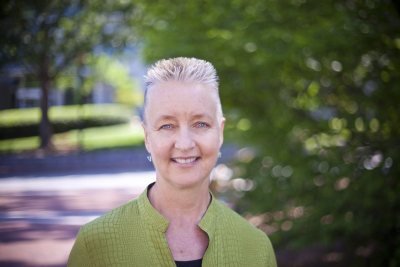
On Wednesday, Nov. 8th, the Department of Gender, Sexuality, and Feminist Studies held the Annual Queer Theory Lecture, held in honor of Eve Kosofsky Sedgwick (1950-2009). Sedgwick was a professor of English at Duke for much of her career. In her time in Durham, she published Epistemology of the Closet in 1990 and Tendencies in 1993. Sedgwick’s legacy as a founding scholar in the field of queer theory has shaped Duke GSF as a leading center for sexuality studies. The introduction was delivered by professor Gabriel Rosenberg who describes the event as an opportunity to “welcome, celebrate, and think alongside individuals considered to be the most provocative and incisive” leaders in the field. This year’s speaker, Lynne Huffer, offered a talk based on the research and production process of her most recent book, These Survivals: Autobiography of an Extinction. Huffer’s lecture was accompanied by the first ever interactive exhibit hosted in the new GSF Feminist Commons. Rosenberg described the “creativity and vitality of intellect” showcased in the talk as a true honor to the memory and scholarship of Eve Sedgwick.
Huffer’s book, These Survivals, comes from what she describes as a “substrate”: the “epistemic conditions that allow my fragments to be seen and heard.” These conditions, established by Foucault, Sylvia Winter, and Dipesh Chakrabarty, among others, allow for Huffer’s reimagining of ethics, one that considers extinction rather than just life itself. Huffer’s work is a response to the lived destruction of the Anthropocene. Huffer, using the language of Chakrabarty, describes “falling into planetary time”, a space where the climate ceases to be the background of human development. The process of creating These Survivals began with Huffer’s stringing of fragments across her living space. She describes her intellectual collage and the experience process of finding, cutting, placing, and gluing, in art and in text. Huffer’s work is counter-conceptual, “more poetic than philosophical”, and brings us into spaces of undoing, a return to the body and the planet-bound self. Huffer’s installation, a collection of pastings on walls and on lines across the space, was experienced by participants as an immersion into her ideas. With the additional help from a colleague and a few students at Elon in the creation of the exhibit, the installation was an example of beautiful uniqueness and impermanence.
Check out the Video Recording of this event HERE!